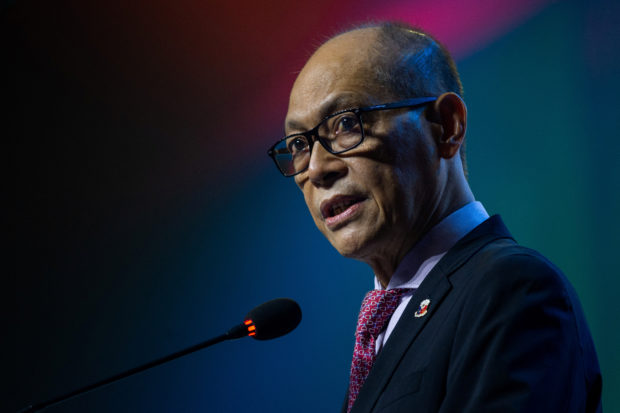The tax measures being proposed by the Marcos administration are unlikely to bring significant revenues for the government and speed up fiscal consolidation, according to S&P Global Ratings.
“We believe these tax measures, though helpful, are unlikely to materially enhance the revenue base of the government,” YeeFarn Phua, director at S&P, said in an emailed response to questions.
Finance Secretary Benjamin Diokno said the finance department has identified four tax measures that it wants to receive presidential certification to speed up their passage.
Diokno said he’s asking President Marcos to certify as urgent pieces of legislation the following bills: package four of the Comprehensive Tax Reform Program (CTRP), the Value Added Tax on Digital Service Providers, Excise Tax on Single-Use Plastic Bags and Excise Tax on Sweetened Beverages and Junk Food.
S&P this week affirmed the country’s triple-B plus rating while keeping a “stable” outlook, meaning changes in the rating are unlikely in the next 18 to 24 months.
Stable outlook
Explaining its decision, the debt watcher said the ratings “reflect the country’s above-average economic growth potential, which should drive constructive development outcomes and underpin broader credit metrics.
The stable outlook, meanwhile, “reflects our expectation that the economic recovery will sustain and fiscal deficits will decline over the next two years,” it added.
Gross domestic product (GDP) is forecast to expand 5.4 percent in 2023, which the debt watcher nevertheless deemed “healthy” despite being slower than the 7.6 percent actual expansion recorded in 2022. Growth is projected to hit 6.4 percent in 2026 which, if realized, would miss the Marcos administration’s target of supercharging growth to 6.5 to 8.0 percent half-way through his six-year term.
Robust growth
The robust growth, in turn, would help trim the government’s budget gap. S&P said it projected the fiscal deficit, as a share of the economy, to shrink to 3.8 percent in 2023, from 4.4 percent last year. By 2026, the credit rater said the budget shortfall is predicted to narrow to 2.3 percent of GDP.
But S&P said restoring the government’s debt settings back to prepandemic levels over the next 12 to 24 months “could be challenging” as aggressive rate hikes meant to tame inflation push up borrowing costs.
Moving forward, S&P said it may raise the Philippines’ ratings if the economy recovers much faster than expected, and the government achieves more rapid recovery of its fiscal health.
“We view the normalization of economic growth in the Philippines after a strong recovery over the past two years to be key in lowering the general government deficit,” Phua said. INQ


